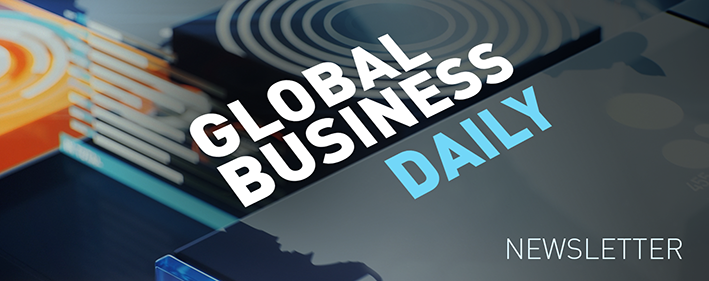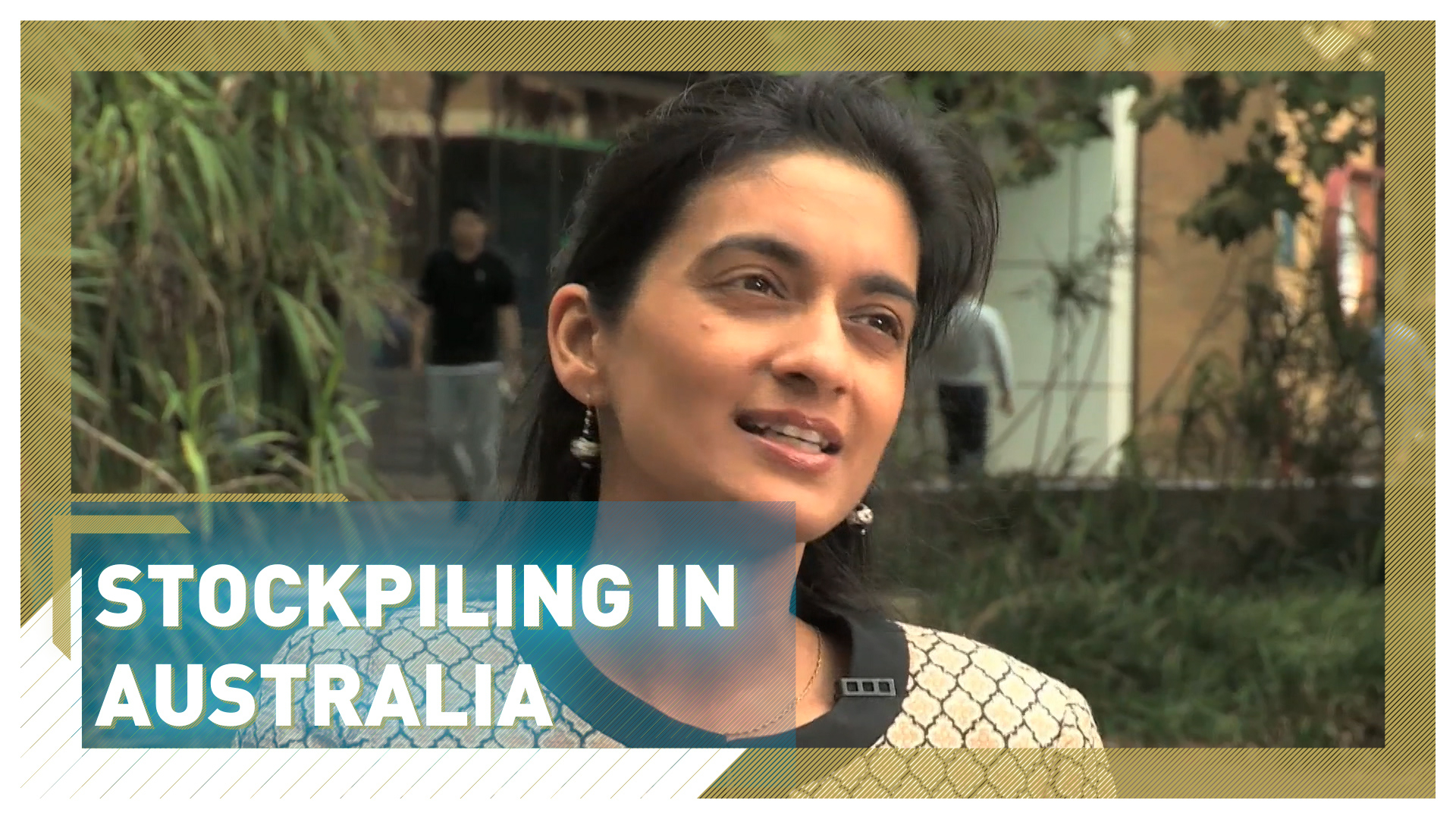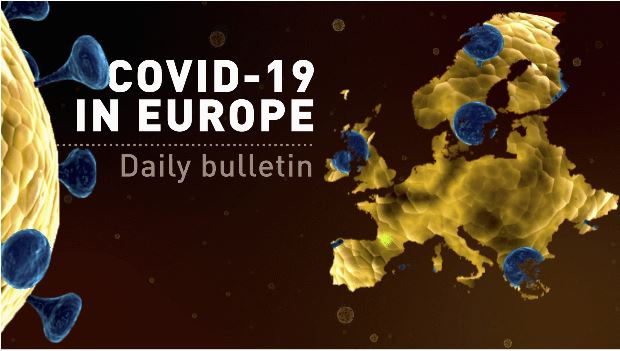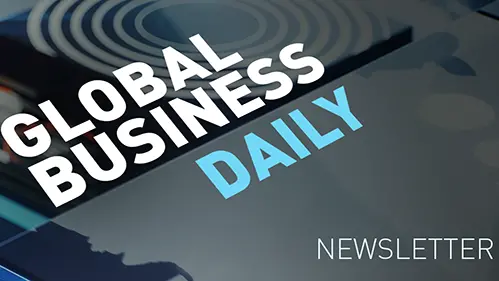"Italy and the ltalians cannot die of the virus because of budget constraints."
It got heated today in Brussels, at the European Parliament's plenary session, and no more so than when Italian MEP Mara Bizzotto declared "to hell with European constraints" and protested against what she saw as financial decisions affecting life-or-death circumstances. Bizzotto's colleague Austrian MEP Roman Haider joined her, and declared "the European Parliament has not passed the test."
The discussion took place against the unprecedented backdrop of the Italian government putting the entire nation on lockdown. Meanwhile, it has promised at least $11 billion in financial assistance to individuals and companies, as the already weakened economy braces for the full coronavirus hit.
Elsewhere, Korean Air is among the global carriers reeling from the effect of COVID-19 on traveling habits. As European airlines cancel flights to Italy, Korean Air is warning the virus might cause the collapse of its business.
All that as stock markets peek above the parapet to recover slightly from yesterday's carnage, just in time to see Saudi Arabia's state oil firm pump another 2.5 million barrels a day into the market.
And we bring you a special look at stockpiling... specifically, stockpiling toilet paper. If you're luckier than me, you'll have been able to buy some over the past week, but many around the world share my misfortune as shoppers clear the shelves. Consumerpsychologist Philip Graves explains the reasons behind the phenomenon in today's interview, including people just copying what others are buying. Do scroll down for more.
Happy reading,
Patrick Atack
Digital business correspondent

After the massive losses on Monday, global markets regained some ground as investors anticipate further central bank action to cushion the economic fallout of the rise in coronavirus cases and the Saudi-Russia oil dispute. U.S. equity indices futures, oil and Asian stock markets all moved sharply higher, but the trading environment remains fragile.
The** Alipay **mobile payment app has launched a three-year strategy to make its platform available to 40 million service providers – to compete with WeChat and others to offer digital gateways and streamlining. Alipay, the biggest payment platform worldwide, is aiming to solidify its position in China.
British Airways, Norwegian, Ryanair and other carriers have canceled the majority, if not all, of their flights to Italy . The move comes after the Italian government put the entire nation into lockdown. Air France-KLM said it would cut 25 percent of its Europeanflights.
Korean Air has gone a step further, according to a memo from the company's president Woo Kee-hong, which said: "If the situation continues for a longer period, we may reach the threshold where we cannot guarantee the company's survival."
Saudi Arabia has escalated the oil price war which sent global markets into chaos yesterday, and stemmed from failed OPEC talks. Aramco said it would supply 12.3 million barrels a day in April – a 2.5 million barrel-per-day increase.
Mobile video app** TikTok** continues its growth. With 113 million downloads, it was the most popular non-game download in February. India is the brand's hottest market, with 41 percent of downloads generated in South Asia, despite U.S. government criticism of its data protection regime.
The Japanese government has stepped in to stop profiteering from COVID-19 supplies. It has brought in a new rule to make reselling face masks for a profit a crime punishable by a year in prison or a fine of $9,800.
A $125 million fund has been set up by the ** Bill Melinda Gates Foundation** , the Wellcome Trust and the Mastercard Impact Fund to assist WHO efforts to come up with a cure for COVID-19. The COVID-19 Therapeutics Accelerator will focus on new and repurposed drugs that can be used right away to treat patients infected with the novel coronavirus.
The Italian government is implementing** $11.35 billion-worth of financial assistance **to companies and families to help with the cost of the nationwide lockdown. As the Italian economy flirts with recession, its industry minister, Stefano Patuanelli, says the government plans to suspend payments of bills, taxes and mortgages.
In a similar move, UK lenders RBS and Lloyd's have said they will defer loan and mortgage repayments by three months and offer $2.6 billion of finance without fees to small businesses, to combat the effect of the novel coronavirus on the economy.
Deutsche Post, which owns global delivery firm DHL , said it had started to see recovery in its Chinese markets – especially with its express product. The company has reintroduced several planes to its operating fleet as volumes have risen.
Swedish finance minister Magdalena Andersson said the government will introduce a second budget bill to parliament to prepare public services for a spike in COVID-19 cases in the Scandanavian country.
Amazon, the world's largest online retailer, has recommended its 7,000 staff in New York** work from home **as the city battles COVID-19. The company's advice also applies at its headquarters in Seattle, Washington and in New Jersey, where the firm employs nearly 20,000 staff.
02:07

PhilipGravesisaconsumerpsychologist, and author of
Consumer.ology.
He spoke to CGTN Europe about why some people resort to sometimes confusing shopping habits when a global scare happens.
Can you explain why people are currently panic buying in response to COVID-19?
There is a whole sequence of factors that have come together into something the equivalent of a perfect storm from a consumer psychology point of view. So, people having their attention drawn to certain items, they're hearing that people, other people are panic buying and they're going into shops and seeing that there are spaces on the shelves and all of that tends to fan the flames, as it were.
Why people are buying a lot of hand sanitizer and toilet paper, but not things like water or extra food?
What we have is the equivalent of a sort of a massive marketing campaign for certain items at the moment, where what marketing is normally trying to do is draw consumer's attention to products to let them know that they are there. And to imply that they are socially desirable, that lots of people want them.
And the media and the stories that we're hearing and also what people see when they go into a supermarket is like a huge advertising campaign. Nobody is going to walk into a supermarket at the moment and not think to themselves, 'I should get toilet roll because it's in the news.' There may not be very much of it around, so it becomes a product that everybody thinks about buying on every single trip. That combined with the fact that it's very conspicuous when people are buying it because it's a bulky item and when it's not on the shelves means that people have a very strong sense that it is being bought by lots of other people.
So, from your professional point of view, people are behaving in a manner that shows how scared they are. Is it fair?
I think there's a degree of what I would term 'loss aversion' involved. So there are two strong psychological forces. One is the social proof that this is what other people are doing. And we see that people will join a queue sometimes just because there's a queue there and they assume people must be queuing for a reason.
We see fashion trends come and go. It's just people following other people. It's what we do. And then this loss aversion is feeling that, ok, I've heard that this stuff might be running out. If I don't act now and then, I'm not able to buy it and I'll really kick myself.
And we know that the human mind is involved with this tempering force of loss aversion to help us make 'better decisions'
– decisions that are more likely to help us survive in our evolutionary past.
What would you recommend to people who are going through this panic buying or herd mentality? Is there anything that can be done for them to control it?
Well, from an individual perspective, the short answer is 'no,' because what I'm describing is, in a sense, our evolved brain
– it's how we've evolved, it's what's worked for us over thousands and thousands and thousands of years. It's a kind of innate response to a particular set of circumstances.
And what's just being highlighted is how we behave all the time. But it's being highlighted. It's moments like this. So if things are going to change, really it's only going to happen through one or two mechanisms. One is, if there is a stigmatization of people who are doing it, and that would be very hard to do and I'm not sure who would take on that role. And the other will be a regulatory or retailer response. And we've seen the retailers saying that they are requesting changes to the competition rules so that they can act together to coordinate what they're doing.
We may ultimately see a more strong role from the government agreeing that particular restrictions need to come into force.
What do you think should be done?
I think we really are reliant on the supermarkets at the moment. I think we really need them to take on a sort of policing role in terms of just tempering this reaction that we're seeing, which is not rational, it's not reflective of anything that's really going to help people particularly.
It's just a sense of people feeling a need, a desire to do something to protect themselves, to protect their families. Again, deep-rooted evolutionary stuff.
We need people who are seeing the big picture to say, 'no, we're going to restrict the timing of when we put products on the shelves, we're going to restrict the amount that people can buy and try to smooth things out so that ultimately people don't end up suffering by not being able to buy essential products.'

Are you interested in a daily briefing on COVID-19 news in Europe? Scan the QR code below to sign up for a midday round-up of our latest coverage as Europe reacts to the virus. Just like Global Business Daily, it will be delivered for free directly to your inbox.
Alternatively, you can follow this link to sign up:
https://cgtn.us4.list-manage.com/subscribe?u=231a2ddce671f735fae201c97id=25ad8c1494

 简体中文
简体中文





